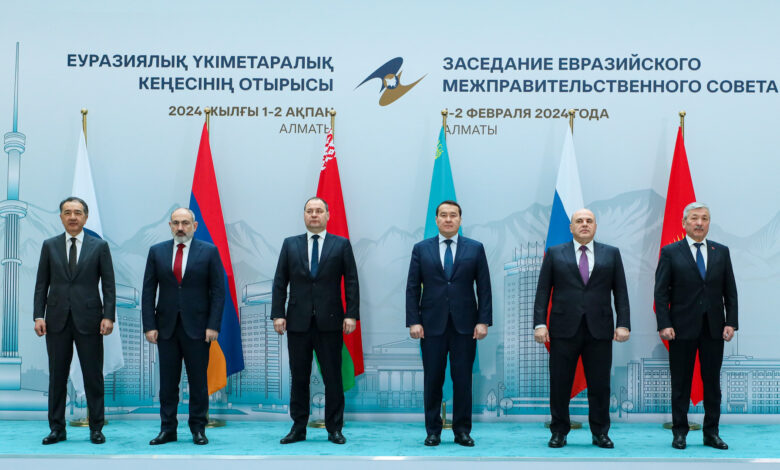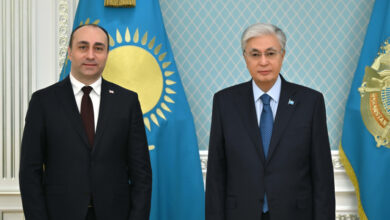
Present at the meeting were the heads of government from Armenia, Belarus, Kazakhstan, and Russia, alongside the First Deputy Chairman of the Cabinet of Ministers of Kyrgyzstan and the Chairman of the Board of the Eurasian Economic Commission (EEC).
Among the issues deliberated were the current status and future prospects of the EAEU integrated information system, plans for creating favorable conditions for electronic trade development, and potential alterations to the list of priority integration infrastructure projects in transportation.
During the discussions, macroeconomic situations in the EAEU member countries were assessed, and proposals were put forth to ensure sustainable economic development. Alikhan Smailov, the Prime Minister of Kazakhstan, highlighted the significance of the 10th anniversary of the EAEU Treaty, emphasizing its dynamic growth into an integration association with 190 million people, a labor market exceeding 93 million, and a GDP of $2.7 trillion. Notably, mutual trade among member states doubled from 2015 to 2022, reaching an impressive $85 billion.
Smailov stressed the importance of the “Eurasian Economic Path” Declaration adopted the previous year, outlining key directions for integration processes over the next five years. He urged concerted efforts for the implementation of specific economic projects to foster the development of member economies.
Highlighting the strategic geographic location of the EAEU at the crossroads of East and West, North and South, Smailov pointed out that Kazakhstan has invested over $35 billion in transit and transport infrastructure over the past 15 years. Initiatives such as the logistics center in Lianyungang, dry port “Khorgos,” and the transit highway “Western Europe – Western China” were emphasized. Ongoing projects include the construction of new railways and the modernization of Caspian seaports.
Smailov called for increased collaboration in industrial cooperation and announced the launch of a financial assistance mechanism for joint projects, aimed at promoting business initiatives, boosting mutual investments, and creating employment opportunities.
The Prime Minister reiterated the importance of realizing the “four freedoms” and the basic principles of the EAEU Treaty, emphasizing the need for a common barrier-free market and unhindered transit of goods to third countries. He urged the digitization of processes to facilitate these objectives.
Smailov also stressed the importance of expanding the international agenda to attract third countries to participate in EAEU infrastructure projects. He concluded by acknowledging the need for adaptability to challenges, both nationally and at the EAEU level, citing the World Bank’s forecast of a slowdown in the global economy in 2024.
At the conclusion of the meeting, the participants signed several pertinent documents.



